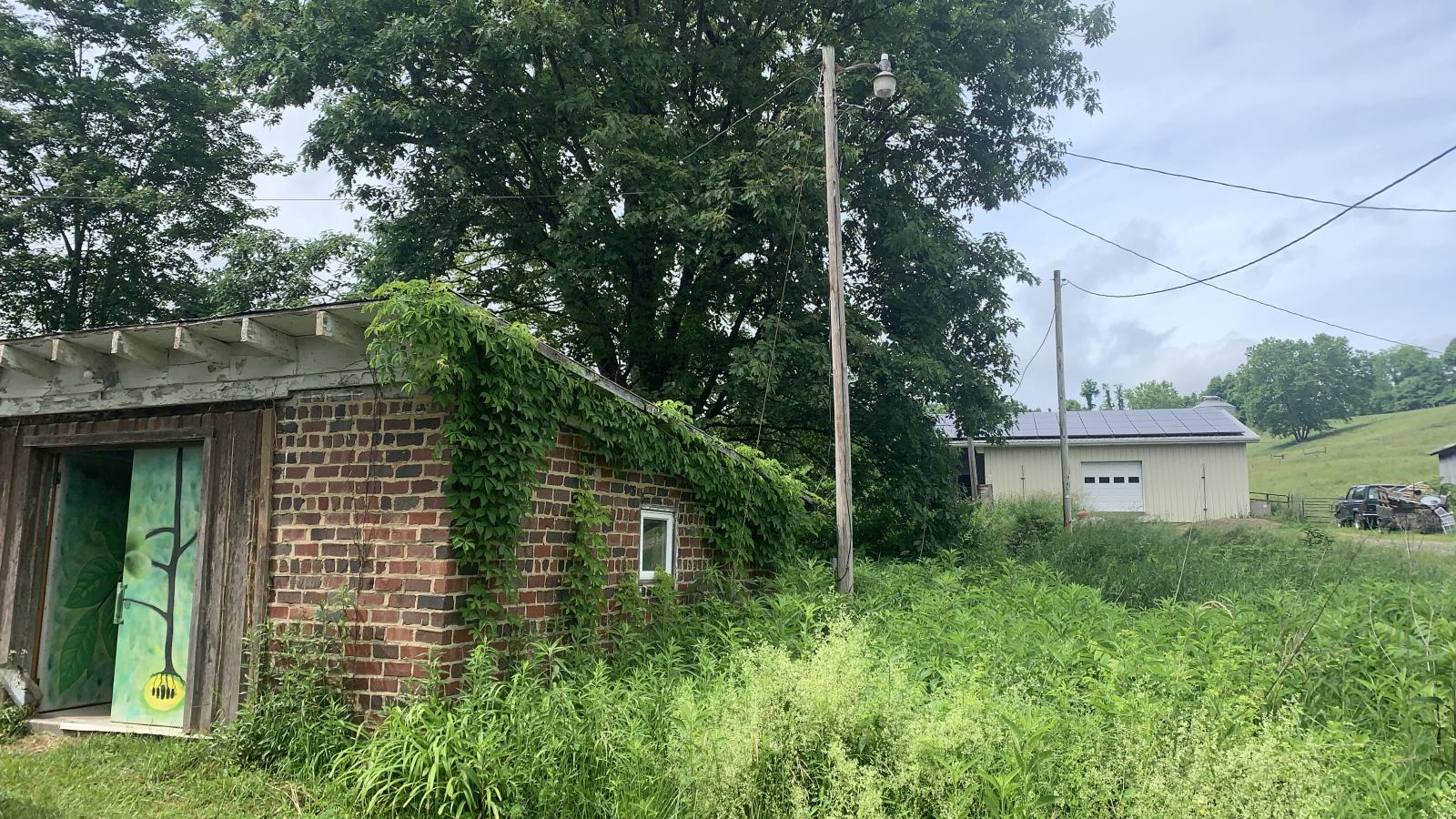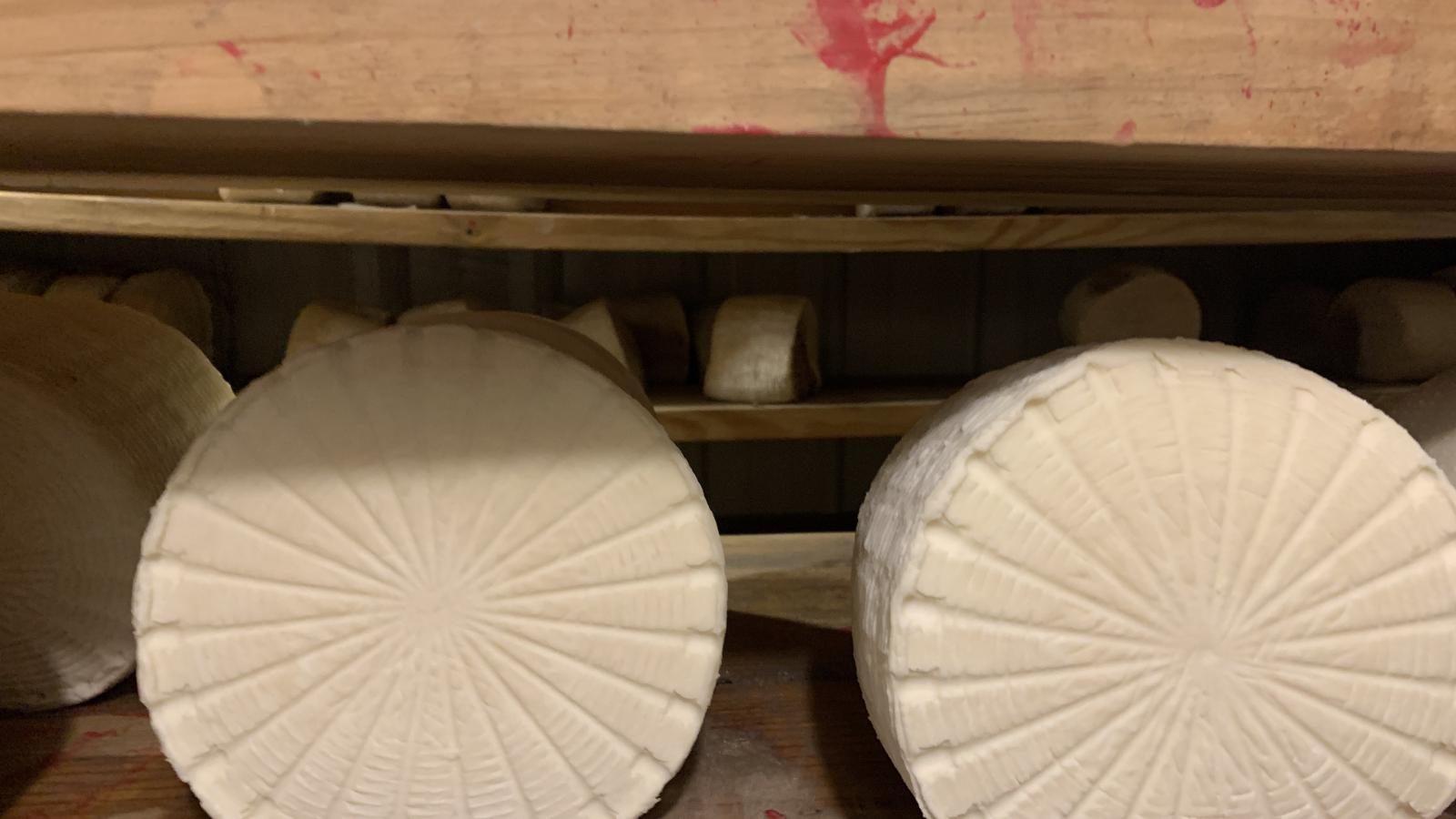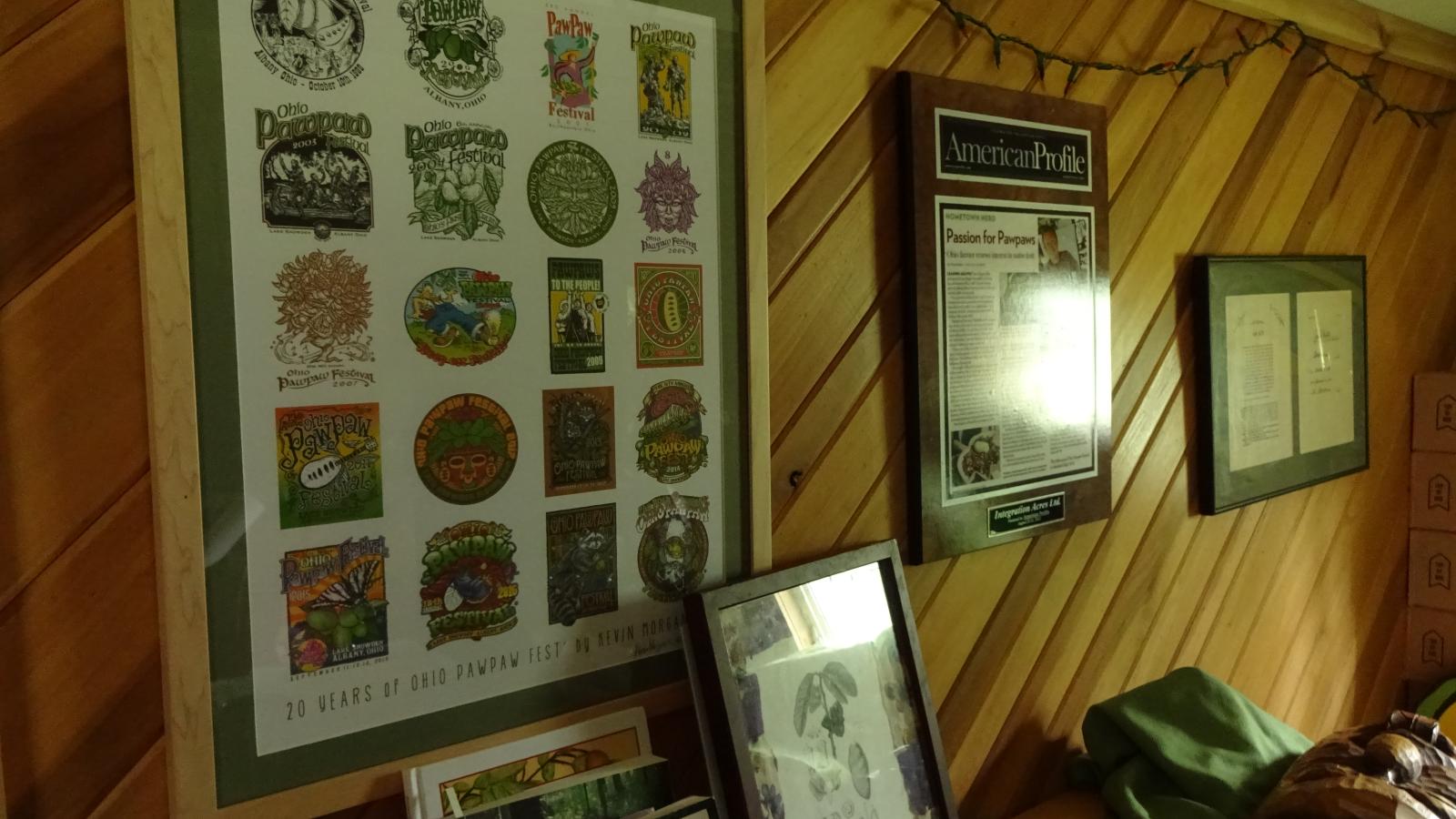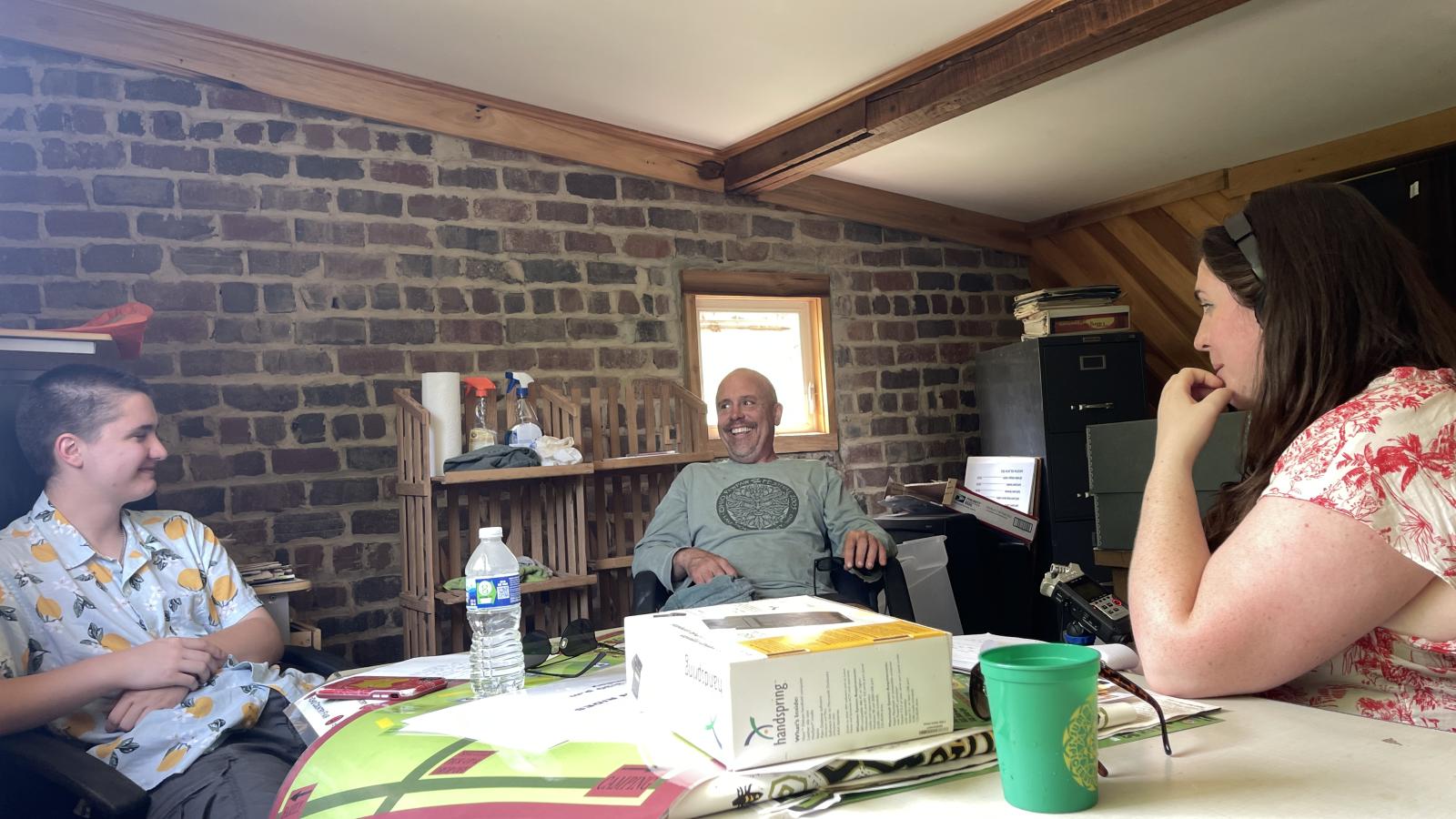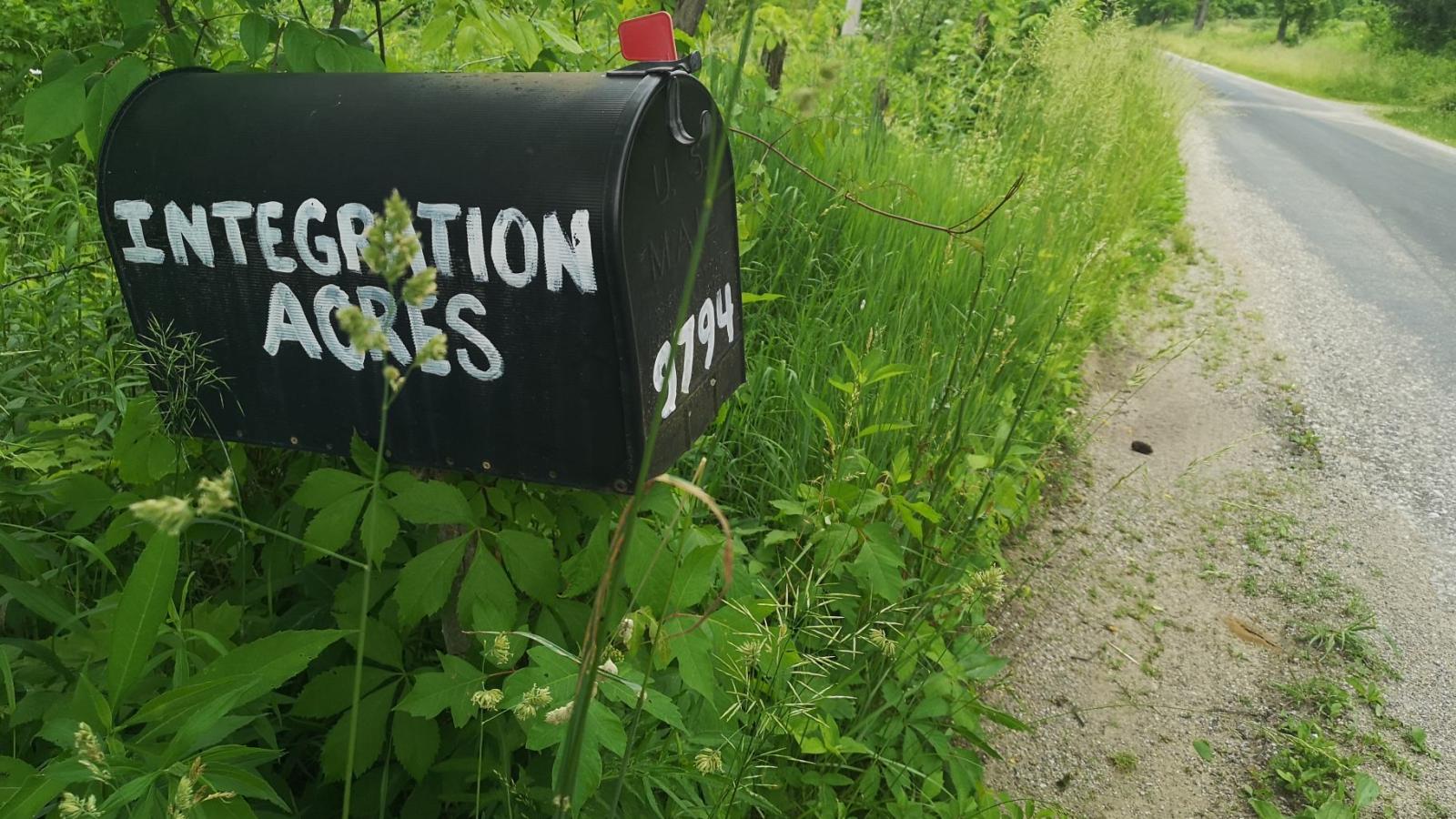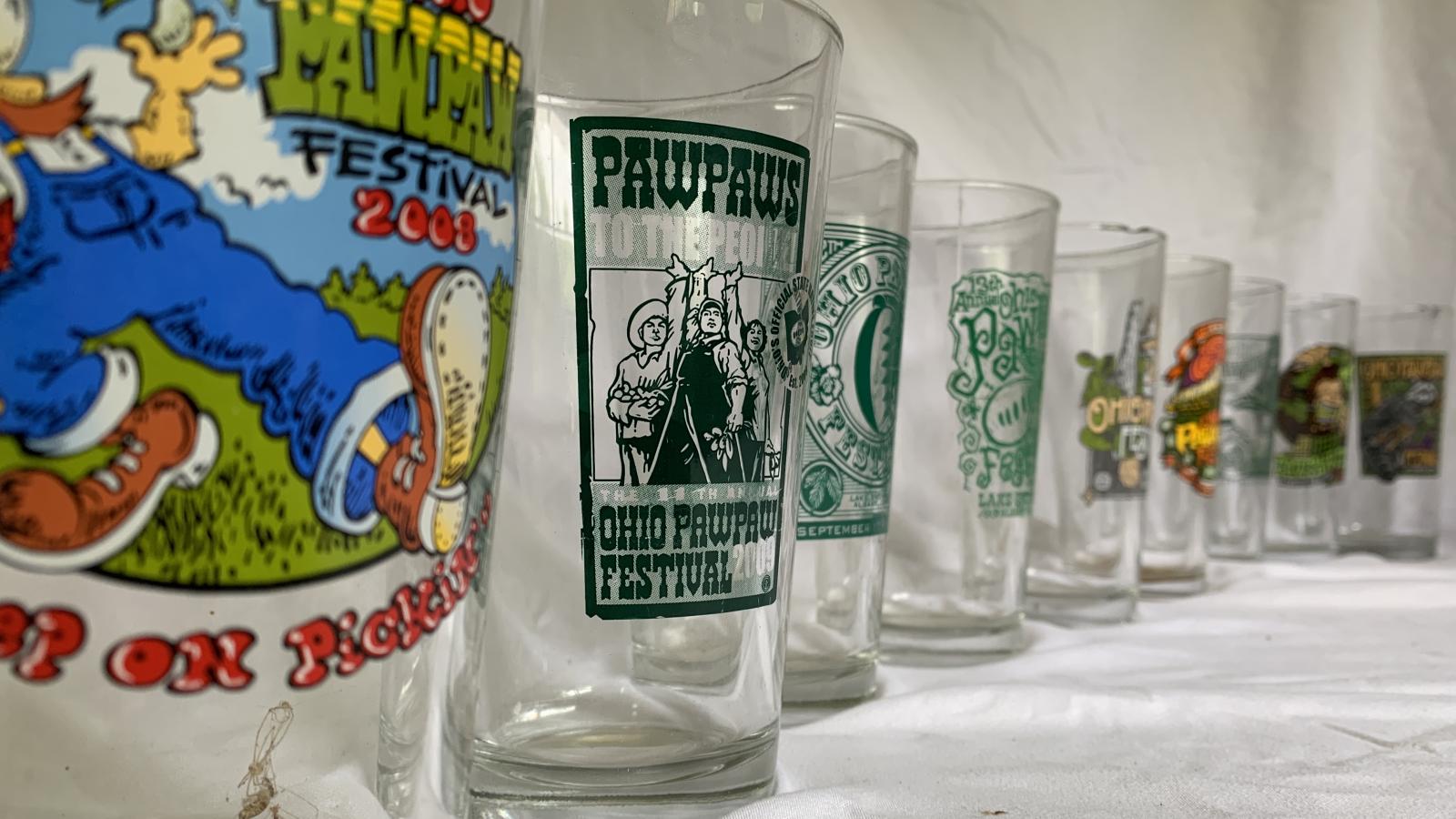Qi Gong as a Model for Holistic and Sustainable Woodland Lifestyles
“So you inhale and you welcome in the heavenly qi, and then you just let it flow down your body and you just feel it wash away those things you don’t really…”. The words wash over the hillside as we are implored to feel the qi – Chinese for ’energy’ or ‘life force’ – flow through our bodies and into the earth, paying attention to our breath, our minds and our bodies in nature. But this is not a yoga class. Or a Buddhist meditation session. This is qi gong – an ancient Chinese wellness practice meaning ‘energy work’. And we are surrounded by 36 goats, who are grazing on tall grass and rubbing against us, begging to be petted.
Chris Chmiel, the self-proclaimed PawPaw King and owner of Integration Acres, invited us to join him in a session of goat qi gong the first time we met him. Initially we assumed qi gong was just a hobby Chris used to relax and disconnect from his very busy life juggling his role as goat farmer, cheese maker, festival organizer, Athens County Commissioner, and manager and owner of one of the largest pawpaw processing plants in the world. But we soon realized that qi gong played a much larger part in Chris’ life; the cyclical energy flows and holistic approach to navigating oneself through the world, that are so central to the practice of qi gong, also shape Chris’ ethos regarding how he conducts himself and his business. The flow of energy between all living beings and their environment, that qi gong invites one to pay attention to, is reflected too in Chris’ guiding principles.
"So, Integration Acres is a holistic space... what you're doing is feeding the economy, and creating a place where community can flourish. And culture can flourish.”
“We don’t have to understand it, or describe it even...just feel it. It is energetic...some energetic stuff that happens”
– OFS student Deanna Holroyd asking Chris Chmiel, 2022
Putting the ‘Integration’ In Integration Acres
“How’d you come up with the name ’Integration Acres’?”
“What does integration mean? Means to become whole. To make all of you”
– OFS student Deanna Holroyd asking Chris Chmiel, 2022
Chris bought the land that became Integration Acres shortly after graduating from Ohio University with his self-customized degree titled ‘Holistic Transition to Sustainability’. Since then, he has developed a model of permaculture farming techniques that center around sustainable ecology, ethical economy and community building practices. The Integration Acres farmland consists of mixed-use agricultural land which Chris, for the most part, leaves well alone. Instead, he rotates his herd of goats throughout the pastures, allowing them to freely graze without depleting the vegetation. The goats, chosen for their lesser impact on soil erosion, eat the plants that would otherwise choke the nutrition from the pawpaw trees on Chris’s land. They also conveniently dislike munching on pawpaw branches and manage to avoid trampling over them like their larger more destructive cousins, cows – an important upside for a businessman who is primarily known for his distribution and celebration of pawpaws.
Aside from replacing Chris’ need for electronic crop management, the goats also serve a second purpose; they produce milk, which Integration Acres’ employees handcraft into aged and pasteurized goat cheese to sell at the local farmers’ market. The farmers’ markets provide the perfect opportunity for Chris to peddle his fresh produce and other culinary goods. Every Saturday Chris sells seasonal vegetables (such as spinach and beets), and saplings and seedlings, that are all grown in his greenhouse and vegetable garden. To be able to produce sufficient quantities of artisanal goods to also sell at the market, Chris pays local foragers to collect non-timber forest crops that are indigenous to the region, such as pawpaws, black walnuts, spice bush berries and stems, and ramps. He then processes these foraged goods in-house with a team of local, seasonal employees. Chris either uses the pawpaw pulp and other forest plants to make his famous pawpaw popsicles and spicebush tea, or he sells them to local breweries and bakeries so that they can produce pawpaw beer and ramp crackers. This way, just as Chris believes in giving attention to cyclical energy flows, he also attempts to keep the money circulating in the local economy, providing extra income for both local residents and vendors alike – all whilst embracing sustainable farming practices and making use of what the land offers.
Big Pawpaw Energy
“Energy in the community and energy in a festival; its people, its culture.”
Besides the sustainable ecological farming and ethical economic practices that inspire the responsible crafting and vending of local indigenous food sources, the energy flow connected to community building is also a major element of Chris’ qi gong-inspired business ethos. The annual Ohio Pawpaw Fest that Chris has been organizing since 1999 is evidence of this. While he may claim that the festival grew out of a desire “to bring pawpaws to the people”, the present-day festival experience transcends this simple goal. Chris sells his foraged food products to local vendors, who are then asked to produce pawpaw food/drink products or pawpaw-inspired crafts to sell to the local community and to festival attendees. Festival goers are invited to participate in pawpaw-related competitions, wear costumes, and learn more about sustainable-living practices, permaculture, and local native species in the education tents on site. The entire Pawpaw Fest community eats, breathes and buys pawpaw culture – all while enjoying some live music and a refreshing pawpaw beer. It’s not hard to imagine the energy buzzing through the festival, as thousands of people come together at Lake Snowden to celebrate the forest fruit, learn from one another, and have a good time.
If Chris is to be believed in his assertion that “life is a festival”, and qi gong is the practice of cultivating life force, then the Ohio Pawpaw Fest is the ultimate culmination of Chris’ attempts to nurture communal energy and foster sustainable and ecological life practices. But, just like any cycle, as the three-day festival draws to a close in mid-September, the energy it generates doesn’t just stop; the end of the Ohio Pawpaw Fest might signal the start of a “slowing down” period for Integration Acres, but it doesn’t last long, as walnut season soon arrives. Chris embraces these energetic ebbs and flows throughout the annual calendar, trying to “fill [his] year with different peaks of activity”, including a well-deserved rest in the Winter. It seems that Chris’ comment on the hilltop to simply inhale and let the qi wash over us, was not just meant as an instruction for our qi gong practice. It was also a reminder to himself to let the qi of Ohio’s woodlands wash over him, his business, and his community.

